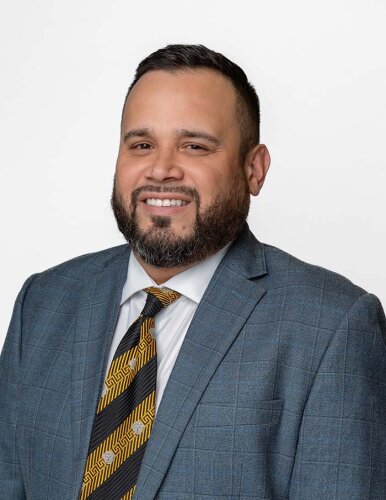Best Sexual Abuse Lawyers in McAllen
Share your needs with us, get contacted by law firms.
Free. Takes 2 min.
List of the best lawyers in McAllen, United States
About Sexual Abuse Law in McAllen, United States
Sexual abuse in McAllen falls under Texas state criminal and civil law and is enforced locally by the McAllen Police Department, Hidalgo County law enforcement, and the Hidalgo County District Attorney. Conduct that involves non-consensual sexual contact, sexual activity with minors, sexual exploitation, or trafficking can lead to criminal charges and civil claims. Victims also have access to medical care, forensic exams, and victim services. The legal process can include criminal investigation and prosecution, protective orders, child welfare involvement when minors are involved, and independent civil lawsuits for damages.
Why You May Need a Lawyer
You may need an attorney if you are a victim of sexual abuse or if you are accused of sexual abuse. Common reasons to seek legal help include:
- To report and navigate the criminal investigation process and interact with police and prosecutors.
- To request or defend against protective orders, emergency interventions, and custody or visitation changes.
- To evaluate civil claims for damages, including assault, intentional infliction of emotional distress, negligence, or claims against employers or institutions for failing to prevent abuse.
- To preserve and gather evidence, including coordinating with forensic exams and obtaining records.
- To protect immigration status, employment, or professional licensing concerns that may arise from an allegation or conviction.
- To advise minors and guardians on child-welfare and juvenile processes, mandatory reporting, and long-term legal options.
Local Laws Overview
Key legal points relevant to sexual abuse in McAllen include:
- Definitions and charges: Texas law defines sexual assault and related offenses in the Penal Code. Offenses range from misdemeanors to first-degree felonies depending on the nature of the act, the use of force, injuries, and the victim's age.
- Age of consent: In Texas, the general age of consent for sexual activity is 17. Sexual activity with persons under that age can lead to statutory offenses, and certain relationships or positions of authority can change how an act is charged.
- Aggravating factors: Use of force, threats, serious bodily injury, use of a weapon, sexual activity with a child, or activity committed by a public servant or person in a position of trust can lead to higher-level charges.
- Child-protection rules: Professionals who work with children are often subject to mandatory reporting to the Texas Department of Family and Protective Services when abuse is suspected. Child welfare investigations may run parallel to criminal investigations.
- Protective orders: Victims may seek protective or restraining orders through the family or criminal courts to limit contact and protect safety. Law enforcement can also obtain emergency protective orders in certain situations.
- Victim rights and services: Victims have rights to notice, participation, protection, and access to victim services. Prosecutors typically have victim assistance units that can explain the criminal process, available services, and compensation options.
- Statute of limitations: Time limits for bringing criminal charges or civil suits vary by offense and circumstance. Some child abuse statutes have extended deadlines or exceptions; other offenses may be subject to traditional statutes of limitations. Because laws change and exceptions may apply, consult an attorney promptly.
Frequently Asked Questions
What should I do immediately after an incident?
First, make sure you are safe. Seek a safe place away from the alleged abuser and call 911 if you are in immediate danger. If you can, preserve physical evidence - do not bathe, change clothes, or clean the area where the assault occurred until after a forensic exam if you plan to report. Obtain medical attention for injuries and ask about a forensic exam. Contact a local victim advocate to help you navigate the next steps.
Will the police automatically arrest the alleged perpetrator?
Not always. Police will investigate and may arrest if probable cause is present or if an arrest is necessary for public safety. Arrest decisions are fact-specific and may depend on available evidence, witness statements, and the immediacy of the threat. A prosecutor ultimately decides whether to file charges.
Do I have to report to law enforcement to get help?
No. You can seek medical care, counseling, and advocacy services without immediately reporting to law enforcement. However, reporting can trigger a criminal investigation and can affect evidence preservation and potential criminal prosecution. A victim advocate can explain reporting options and help coordinate services.
Can I get a protective order and how do I do it?
Yes. In Texas, victims may seek protective orders to keep the alleged abuser away, prohibit contact, and address temporary custody or residence issues. Emergency protective orders may be issued by law enforcement; longer-term orders require filing in court. An attorney or victim advocate can assist with the application and hearing process.
What kind of evidence is most helpful in sexual abuse cases?
Helpful evidence can include medical and forensic exam reports, photographs of injuries, clothing, electronic communications, text messages, social media posts, witness statements, surveillance footage, and contemporaneous notes or diaries. Timely preservation of evidence increases its usefulness.
Can I bring a civil lawsuit as well as report to the police?
Yes. Criminal prosecution is brought by the state, while victims can pursue civil suits for damages against the perpetrator and sometimes against third parties such as employers, schools, or institutions that negligently enabled abuse. Civil cases have different burdens of proof and timeframes than criminal cases.
What if the alleged abuser is a family member, a coworker, or someone at my school?
Different systems may respond depending on the context. Family incidents may involve both criminal and family court proceedings. Workplace incidents may trigger employment investigations, civil claims, and criminal charges. For incidents at schools or colleges, Title IX or campus disciplinary procedures may apply in addition to criminal options. An attorney can help coordinate remedies across systems.
How long does a criminal case usually take?
Case length varies widely. Some matters are resolved by plea agreement in months; others proceed to trial and can take many months or longer depending on evidence, court schedules, pretrial motions, and complexity. Victims are typically kept informed by victim services when cases advance.
Will I have to testify in court?
Possibly. If a case goes to trial, the victim is often a key witness for the prosecution. Some jurisdictions offer accommodations, such as closed-circuit testimony for minors or other protective measures. Your victim advocate and attorney can explain what to expect and available protections.
How do I find a lawyer who handles sexual abuse cases in McAllen?
Look for attorneys with experience in sexual assault, family law, criminal defense, or civil litigation relevant to abuse cases. Consider asking for referrals from victim advocacy programs, legal aid organizations, or local bar associations. Ask prospective attorneys about their experience with similar cases, fees, possible outcomes, and whether they offer initial consultations or contingency arrangements for civil matters.
Additional Resources
When seeking help in McAllen, consider reaching out to these types of resources:
- Local police departments and county sheriff offices for emergency response and to file reports.
- Hidalgo County District Attorney victim assistance or victim witness programs for information about the criminal process and support services.
- Texas Department of Family and Protective Services for reports involving children and for guidance on child welfare involvement.
- Local hospitals with Sexual Assault Nurse Examiner - SANE - services for forensic exams and trauma-informed medical care.
- Local victim advocacy centers and shelters for counseling, safety planning, and help obtaining protective orders.
- Statewide resources, such as victim compensation programs and statewide hotlines, for financial help and crisis support.
- National organizations that provide confidential 24/7 help and information, along with referrals to local services.
- Legal aid and pro bono legal services in Hidalgo County for individuals who cannot afford private counsel.
Next Steps
If you or someone you care about needs legal assistance related to sexual abuse, consider the following steps:
- Ensure immediate safety. If you are in danger, call 911 right away.
- Get medical care and consider a SANE exam to document injuries and preserve evidence, even if you are unsure about reporting to police.
- Preserve evidence and document details: keep texts, emails, photos, and write down what happened as soon as you can.
- Contact a local victim advocate for emotional support, safety planning, and guidance through medical and legal options.
- Decide whether and when to report to law enforcement. A victim advocate or attorney can help you weigh the options.
- Consult an attorney who has experience with sexual abuse matters to understand criminal and civil options, time limits, and likely outcomes.
- Explore protective orders and safety measures if you face ongoing risk.
- Keep records of all contacts with law enforcement, medical providers, and other professionals, including names, dates, and summaries of conversations.
This guide is informational and not a substitute for legal advice. Laws and procedures can change, and every situation is different. For advice tailored to your circumstances, contact a qualified attorney or local victim assistance program in McAllen.
Lawzana helps you find the best lawyers and law firms in McAllen through a curated and pre-screened list of qualified legal professionals. Our platform offers rankings and detailed profiles of attorneys and law firms, allowing you to compare based on practice areas, including Sexual Abuse, experience, and client feedback.
Each profile includes a description of the firm's areas of practice, client reviews, team members and partners, year of establishment, spoken languages, office locations, contact information, social media presence, and any published articles or resources. Most firms on our platform speak English and are experienced in both local and international legal matters.
Get a quote from top-rated law firms in McAllen, United States — quickly, securely, and without unnecessary hassle.
Disclaimer:
The information provided on this page is for general informational purposes only and does not constitute legal advice. While we strive to ensure the accuracy and relevance of the content, legal information may change over time, and interpretations of the law can vary. You should always consult with a qualified legal professional for advice specific to your situation.
We disclaim all liability for actions taken or not taken based on the content of this page. If you believe any information is incorrect or outdated, please contact us, and we will review and update it where appropriate.














